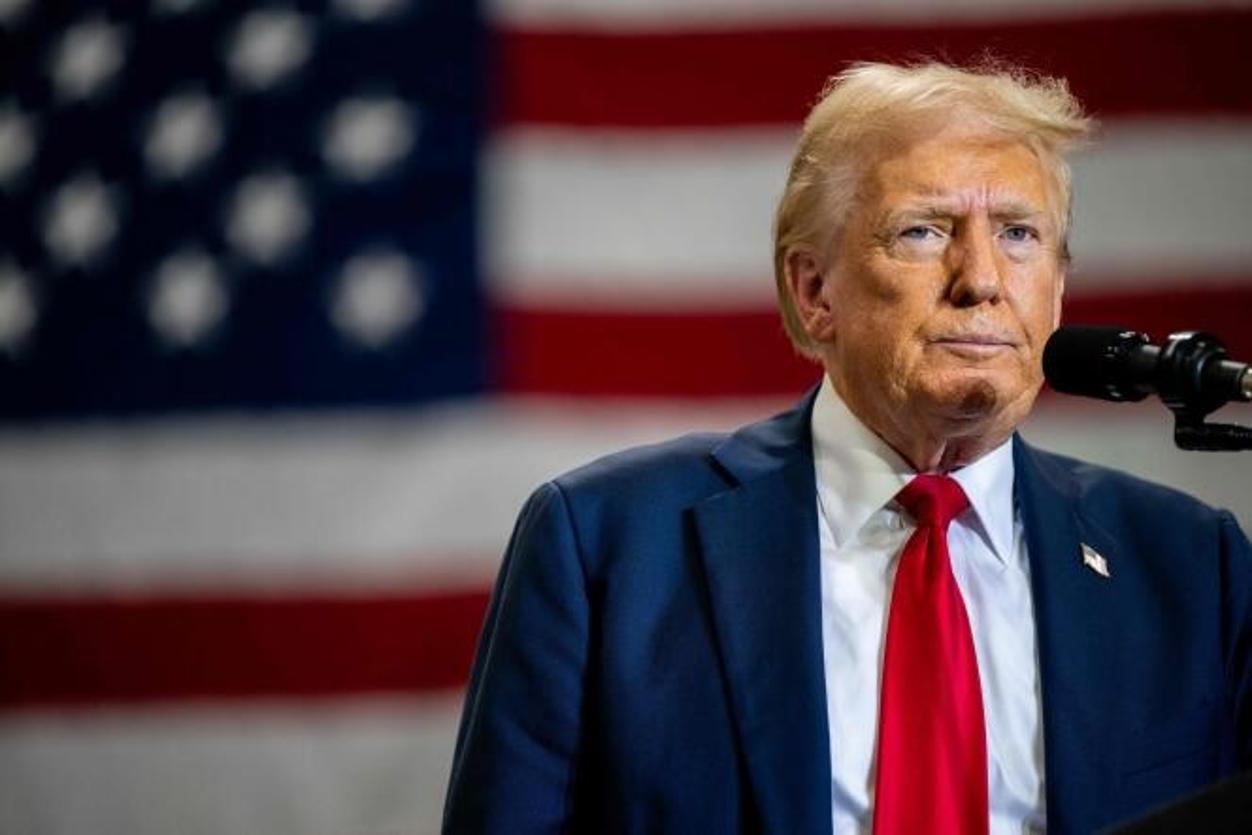Iran is intensifying its efforts to interfere in the upcoming US election, with fake news websites and hackers to target Donald Trump.
Historically recognised for conducting covert influence operations against its enemies, Iran is now seen as a significant disinformation threat leading up to the November 5 presidential election.
The United States unveiled charges on Friday against three Iranians over a “wide-ranging hacking campaign,” with Attorney General Merrick Garland saying they were attempting to undermine Trump’s election effort.
A number of fake websites posing as news outlets are generating fabricated reports critical of Trump, according to disinformation researchers. Much of the content appears to be produced using inexpensive and widely available generative AI tools.
Dina Sadek, a fellow at the Atlantic Council’s Digital Forensic Research Lab (DFRLab), told AFP that these fake outlets demonstrate “the depth and coordinated planning of Iranian influence operations” aimed at swaying US voters.
The DFRLab released a report this week warning that “government-led Iranian operations have increased significantly in the lead-up to the 2024 elections.”
One site highlighted by the Microsoft Threat Analysis Center (MTAC) is NioThinker, which claims to be the “go-to destination for insightful, progressive news.”
Another site labeled former Donald Trump an “opioid-pilled elephant in the MAGA china shop,” Microsoft found.
According to (MTAC) in recent months, the site’s focus has “increasingly shifted to the US elections,” with its content including “sarcastic, long-winded articles insulting Trump,”
The Foundation for Defense of Democracies (FDD) pointed out another Iranian-created site—Afromajority—aimed at African American voters, featuring content that is often critical of Trump and supportive of Democratic nominee Vice President Kamala Harris.
Among a network of 19 websites disseminating Iranian propaganda, at least eight English-language portals are primarily focused on the US election.
Many of these sites specifically target key voting demographics, including African Americans and Hispanics, according to the Washington-based FDD think tank.
Researchers also highlighted Westland Sun, which appears to concentrate on issues affecting Muslims in Michigan—a key swing state with a significant Arab-American population.
The Microsoft Threat Analysis Center (MTAC) noted that Iranian actors have also created sites aimed at conservative voter groups, such as Savannah Time, which focuses on Republican politics and LGBTQ issues.
According to Sadek, these sites are “part of a broader multi-language” Iranian influence operation that has been in place since at least 2020.
On July 13, after a gunman wounded Trump at a rally in Pennsylvania, US media reported that authorities had received intelligence on an alleged Iranian plot against him.
Trump says there were “big threats” to his life posed by Iran. Tehran has rejected accusations that it is trying to kill the Republican. US officials have also raised concerns about Russian efforts to interfere in the election.
(MTAC) also reported that Russian operatives are intensifying disinformation campaigns aimed at damaging Harris’s campaign by spreading conspiracy-laden videos.
It follows accusations from the US government that Russia’s state news agency, RT, is attempting to influence the election, leading Washington to impose sanctions on its top editors.
Meta Takes Down Accounts Tied To Iranian Hackers
In August Meta said Iranian-linked hackers posed as tech support on the WhatsApp messaging app to target people affiliated with the administrations of President Joe Biden and former President Donald Trump, in the latest evidence of Iran’s attempts to influence the 2024 presidential election.
The parent company of Facebook, Instagram and WhatsApp recently said it has blocked a small cluster of WhatsApp accounts linked to a group of hackers affiliated with Iran’s Islamic Revolutionary Guard Corps.
In a joint statement the Office of the Director of National Intelligence, the FBI, and the federal cybersecurity agency CISA wrote, “Iran perceives this year’s elections to be particularly consequential in terms of the impact they could have on its national security interests,”
“We have observed increasingly aggressive Iranian activity during this election cycle, specifically involving influence operations targeting the American public and cyber operations targeting Presidential campaigns.”
The Trump campaign blamed the leak of internal documents to news outlets to Iran, an allegation currently under investigation by the FBI.
Microsoft offered more specific details than the U.S. intelligence community has in recent briefings regarding the activities of various cyber groups, many of which are linked to Iran’s Revolutionary Guards.
In response to the allegations, Iran’s mission to the United Nations in New York denied any attempts to interfere with or conduct cyberattacks against the U.S. presidential election.
Meanwhile, the Harris campaign reported that it received a warning from the FBI in July about being targeted by a foreign influence operation, although they maintain that there have been no known security breaches.







